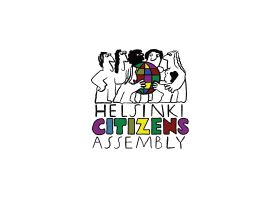Հելսինկյան քաղաքացիական ասամբլեայի Վանաձորի գրասենյակի խաղաղասիրական ծրագրերի համակարգող Արմինե Սադիկյանը Մեդիա կենտրոնի «Պատերազմի պատճառով անհայտ կորած և վիրավորված զինծառայողների հատուցում ստանալու ընթացակարգը. ի՞նչ պետք է իմանալ» թեմայով վեբինարի խոսնակն էր։
Մանրամասները ԱՅՍՏԵՂ և տեսանյութում․
Դիտումներ: 1

